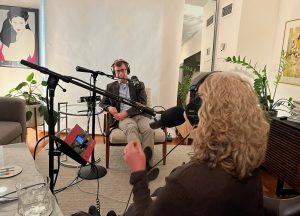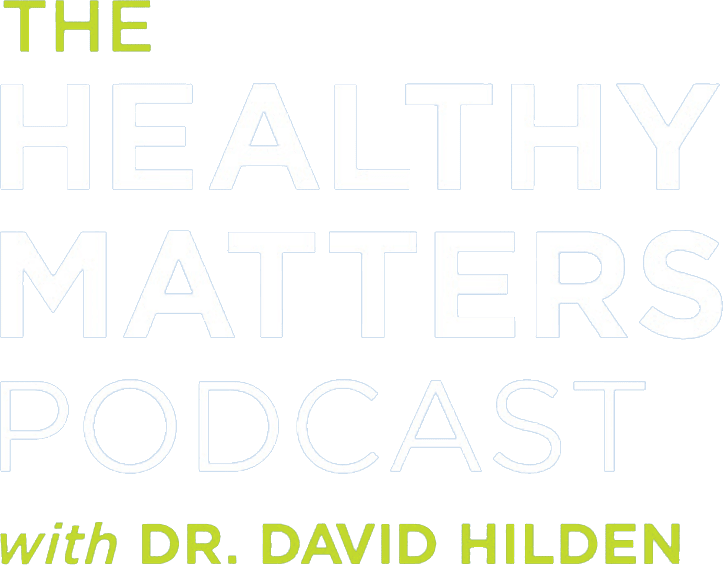The scourge of black licorice: Detective “Pitbull” breaks the case
 Have you ever wondered what happens inside the doors of Minnesota’s first Level I Trauma Center and premier teaching hospital? My friend and colleague from the hinterlands of Wisconsin, Dr. Meghan Walsh joins me to talk about medical training, “living” at the hospital, how things have changed, and a few unique cases.
Have you ever wondered what happens inside the doors of Minnesota’s first Level I Trauma Center and premier teaching hospital? My friend and colleague from the hinterlands of Wisconsin, Dr. Meghan Walsh joins me to talk about medical training, “living” at the hospital, how things have changed, and a few unique cases.
“We’re training today’s doctors to be tomorrow’s workforce in ways that are intentional and I think impactful,” said Dr. Walsh, who is Hennepin Healthcare’s Chief Academic Officer.
She shares some fascinating patient stories, including one involving a steak from Manny’s, a flashback to Gloria Steinem, and an outstanding example of detective work that led to an easy diagnosis for a candy-loving patient.
I’ve often heard people say that they’d never seek care at a hospital where they train doctors. To this Dr. Walsh says, “I can’t imagine not going to a teaching hospital. I mean, there’s so much curiosity and teaming.”
 That’s the answer you’ll find by anyone who has been cared for at a teaching hospital and by those of us who work at one. There are multiple caregivers asking you questions and going over your care. And if there’s any kind of mystery surrounding what’s going on, someone gets to the bottom of it.
That’s the answer you’ll find by anyone who has been cared for at a teaching hospital and by those of us who work at one. There are multiple caregivers asking you questions and going over your care. And if there’s any kind of mystery surrounding what’s going on, someone gets to the bottom of it.
Check out Episode 2 of The Healthy Matters Podcast, and while you’re at it check out this cool video from our Here series that introduces you to a couple of residents who talk about the program and why it’s so important for Minnesotans.
Let’s go!
 I wasn’t always a doctor. I was a dorky, nerdy engineering kid, about 24-years-old, making barcodes for a living. After about six years of making the most amazing barcodes you’ve ever seen, my wife asked me to “do that medicine thing that you talked about.” I applied for medical school with two little toddlers at home and hardly two nickels to rub together, but I made it.
I wasn’t always a doctor. I was a dorky, nerdy engineering kid, about 24-years-old, making barcodes for a living. After about six years of making the most amazing barcodes you’ve ever seen, my wife asked me to “do that medicine thing that you talked about.” I applied for medical school with two little toddlers at home and hardly two nickels to rub together, but I made it.
My medical career started about 20 years ago and for the past 13 of those years I’ve been talking about Healthy Matters on the radio – but now you and I are headed for a new adventure, where we’ll carry on the Healthy Matters tradition that you’ve trusted for so many years. In this first episode of our new podcast, I share a little about how this got started, where it’s been and where we’re going.
The Healthy Matters podcast is going to be a new and expanded way for us to stay connected. So here’s what you can expect on the podcast. I will continue to give reliable, trusted, scientifically sound medical information in a way that I hope is meaningful to you. There is so much healthcare information and misinformation out there and it can be overwhelming. We’re going to break it down in to meaningful, helpful information for you and your family. From the perspective of real doctors and other healthcare practitioners, we’re going to share insights and stories that will humanize medicine. Familiar segments will include “Hilden’s House Calls” where we’ll answer your health questions – just like we did on our Open Lines show on the radio.
No health care topic is off limits. And you know the old adage that “laughter is the best medicine”? I believe that’s true – so if we can have a little fun while we’re talking about topics that are relevant to you and your family, then doing it with a little bit of fun is the way to go. So let’s go!
COMING IN JANUARY: THE NEW HEALTHY MATTERS PODCAST with Dr. David Hilden
Check back here in early January for episodes of the new Healthy Matters Podcast. Hosted by Dr. David Hilden, the podcast will cover all things health, healthcare and what matters to you.
Got a question for the doctor? Feel free to reach out at any of the following:
Email: healthymatters@hcmed.org
Call: 612-873-TALK (8255)
Twitter: @DrDavidHilden
Keep checking back here for new content and new episodes of the Healthy Matters Podcast!
The nerve of those nerves
Are your nerves playing tricks on you? Recently someone asked me about peripheral neuropathy – and that’s literally what happens. Peripheral neuropathy doesn’t really involve your brain or spinal column – it’s those nerves. But it’s not entirely their fault. High blood sugar over long periods of time can damage nerves and reduce their ability to send messages to the brain and other parts of the body. This condition is most commonly caused by diabetes.
Peripheral neuropathy causes pain and numbness in your legs, feet, arms and hands. Symptoms can range from mild pain or numbness to debilitating pain and numbness that can put you at risk for falls, or wounds that are difficult to detect and heal.
You should see your doctor if you’re concerned about any symptoms of peripheral neuropathy and if they keep you from the activities you enjoy. If you specifically have numbness or achiness in your feet, you should see a doctor who may refer you to a neurologist.
As always, watch your blood sugar levels, maintain a healthy weight, stay active and watch your cholesterol and blood pressure to avoid so many kinds of unhealthy matters – including having your nerves play tricks on you.

